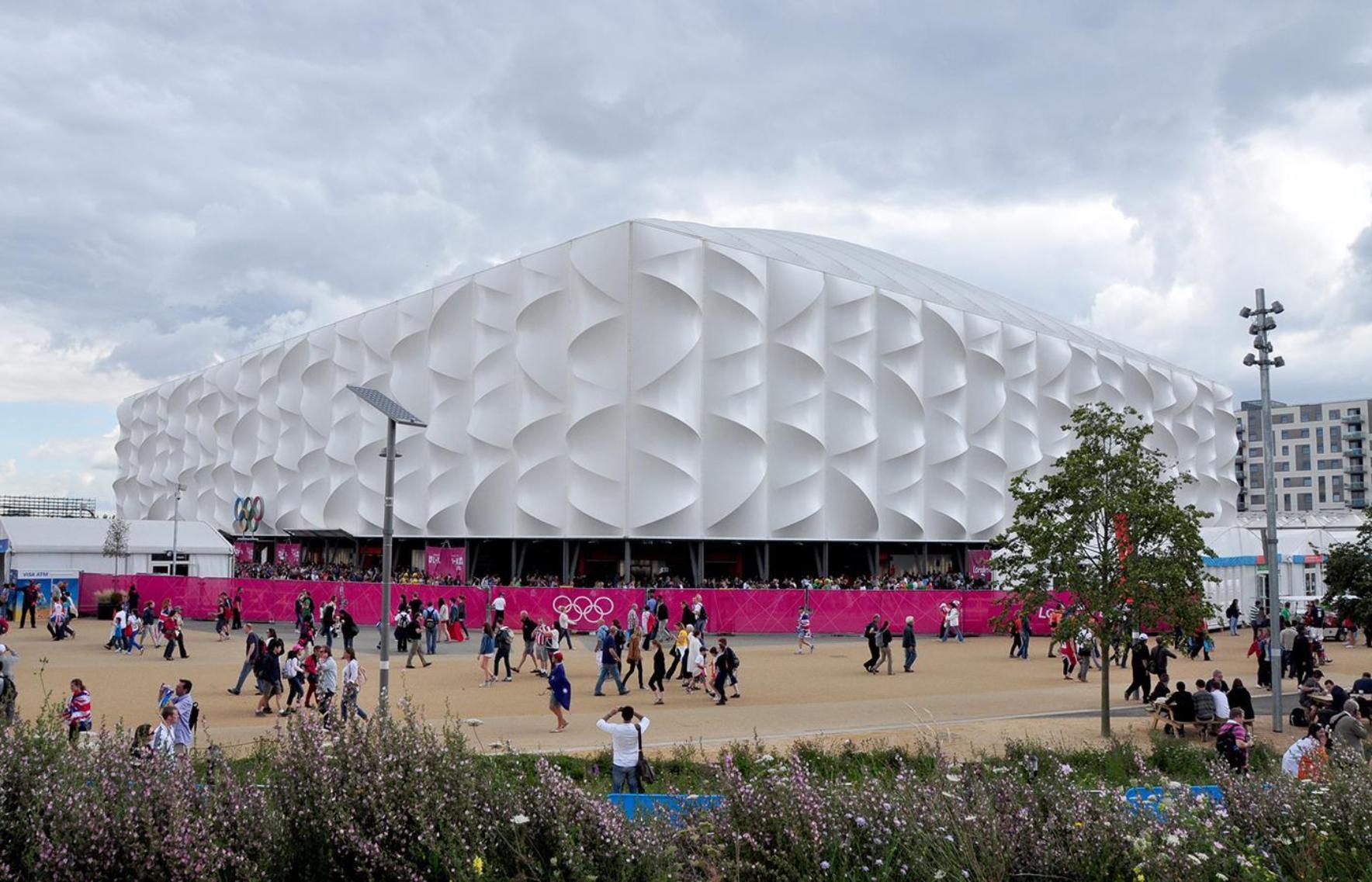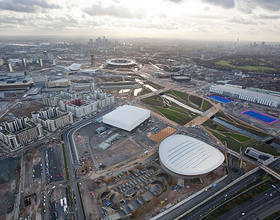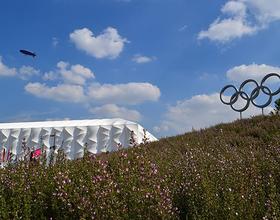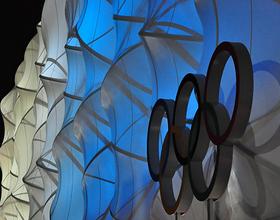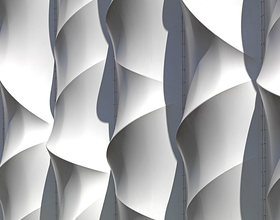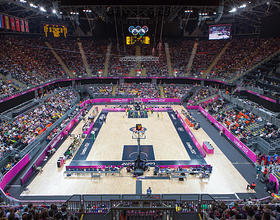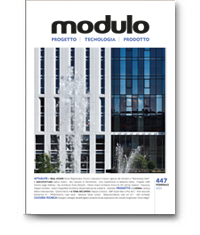OLYMPIC BASKETBALL ARENA
-
The London 2012 Olympic Games were widely billed as the most sustainable ever, and WilkinsonEyre's design of the Basketball Arena was a crucial part of the architectural mix. The challenge was to create a temporary building that would not only be simple to erect and sustainable in terms of its legacy once the Games were over, but also provided a world-class sporting venue for some of the most popular Olympic events.
In November 2007, the SKM/WilkinsonEyre/KSS design team was appointed to create the arena and devised a solution in which two-thirds of the materials and elements within the building could be reused or recycled after the Games. During the Olympic Games the arena seated 12,000 for the basketball and handball competitions, and reduced to a capacity of 10,000 for wheelchair basketball and rugby during the Paralympic Games.
After exploring a series of strategies for creating a structure with reusable and recyclable elements, the team opted for a lightweight steel frame and fabric cladding, allowing this enclosure to be constructed in just six weeks.
The structure of the 30m-high, rectangular volume (equivalent to a seven-storey building) was composed of a series of portal frames, connected by a dramatic matrix of lightweight steel members.
This structure was wrapped in 20,000m² of translucent PVC, stretched across arched steel framing modules that pushed the fabric out to create an undulating, three-dimensional texture across the façade.
Despite the simplicity of the design strategy, the building's exterior was highly expressive, with the play of sunlight over the crisply sculptural white membrane during the day. During evening sessions, the venue was transformed into a theatrical light installation, with dynamic colour-changing effects across the surface skin.
Photo credits: WilkinsonEyre
Countries: UNITED KINGDOM
Categories:
Technology Focuses:
Designer:
Status: Completed
Inaugurazione: 2011
1869 Projects

